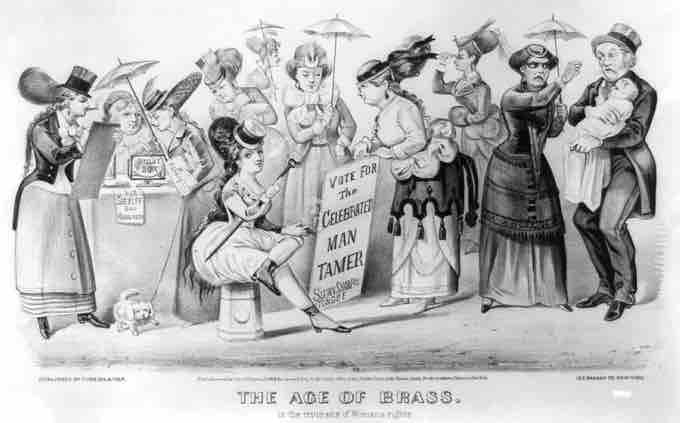Organization
In a modern political campaign, the campaign organization will have a coherent structure and staff like any other large business. Political campaign staff is the people who formulate and implement the strategy needed to win an election. Many people have made careers out of working full-time for campaigns and groups that support them. However, in other campaigns much of the staff might be unpaid volunteers.
Campaign Manager
Successful campaigns usually require a campaign manager to coordinate the campaign's operations. Apart from a candidate, the campaign manger is often a campaign's most visible leader. Modern campaign managers may be concerned with executing strategy rather than setting it, particularly if the senior strategists are typically outside political consultants such as primarily pollsters and media consultants.
Activists
Activists are the 'foot soldiers' loyal to the cause. They are the true believers who will carry the run by volunteer activists. These volunteers and interns may take part in activities such as canvassing door-to-door and making phone calls on behalf of the campaign.

Caricature of Woman Suffrage 1869
This is a satirical caricature of the possible consequences of giving women the vote. The two candidates "Susan Sharp-tongue the Celebrated Man-Tamer" (dressed in circus-performer costume) and "Miss Hangman for Sheriff" canvass for women's votes (in 1869 women could not vote anywhere in the United States, except as a newly-established experimental innovation in the remote territory of Wyoming). At the right, a sharp-featured woman brandishes a fist threateningly at her husband, who holds the baby. In the 1860's chignons were a fashionable hairstyle worn by most women and often supplemented with a roll of artificial hair. The artist has caricatured this hairstyle.
Political Consultants
Political campaigns in the United States are not merely a civic ritual and an occasion for political debate. Campaigns are a multi-billion dollar industry, dominated by professional political consultants using sophisticated campaign management tools. Though the quadrennial presidential election attracts the most attention, the United States has a huge number of elected offices. There are wide variations between different states, counties, and municipalities on which offices are elected and under what procedures. Moreover, unlike democratic politics in much of the rest of the world, the U.S. has relatively weak parties. While parties play a significant role in fundraising and occasionally in drafting people to run, the individual candidates themselves ultimately control campaigns
Campaign Departments and Their Respective Purposes
The field department focuses on the "on-the-ground" organizing that is required in order to personally contact voters through canvassing, phone calls, and building local events. Voter contact helps construct and clean the campaign's voter file in order to help better target voter persuasion and identify which voters a campaign most wants to bring out on Election Day. The field department is generally also tasked with running local "storefront" campaign offices as well as organizing phone banks and staging locations for canvasses and other campaign events.
The communications department oversees both the press relations and advertising involved in promoting the campaign in the media. They are responsible for the campaign's message and image among the electorate. This department must approve press releases, advertisements, phone scripts, and other forms of communication before they can be released to the public.
The finance department coordinates the campaign's fundraising operation and ensures that the campaign always has the money it needs to operate effectively. The techniques employed by this department vary based on the campaign's needs and size. Small campaigns often involve casual fundraising events and phone calls from the candidate to donors asking for money. Larger campaigns will include everything from high-priced sit-down dinners to e-mail messages to donors asking for money.
The legal department makes sure that the campaign is in compliance with the law and files the appropriate forms with government authorities. In Britain and other Commonwealth countries, such as Canada and India, each campaign must have an official agent who is legally responsible for the campaign. The official agent is obligated to make sure the campaign follows all rules and regulations. This department will also be responsible for all financial tracking including bank reconciliations, loans, and backup for in-kind donations.
The technology department designs and maintains campaign technology such as voter file, websites, and social media. While local (county, city, town, or village) campaigns might have volunteers who know how to use computers, state and national campaigns will have information technology professionals across the state or country handling everything from websites to blogs to databases.
The scheduling and advance department makes sure that the candidate and campaign surrogates are effectively scheduled in order to maximize their impact on the voters. This department also oversees the people who arrive at events before the candidate to make sure everything is in order. Often, this department will be a part of the field department.
On small campaigns the scheduling coordinator may be responsible for developing and executing events. The scheduling coordinator typically: a) manages the candidate's personal and campaign schedule, b) manages the field and advance team schedules, and c) gathers important information about all events the campaign and candidate will attend.
Candidates and other members of the campaign must bear in mind that only one person should oversee the details of scheduling. Fluid scheduling is one of the main components to making a profound impact on voters.